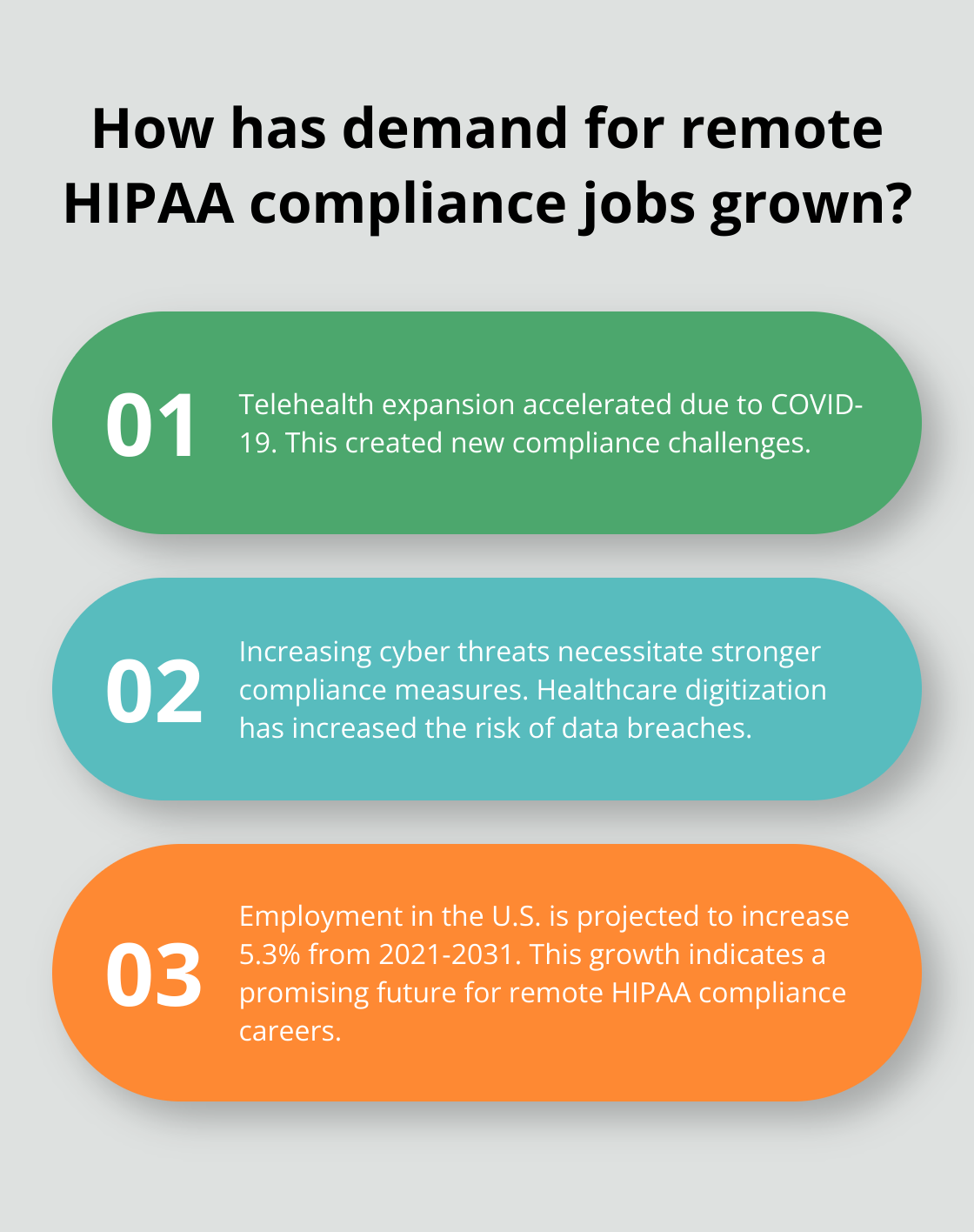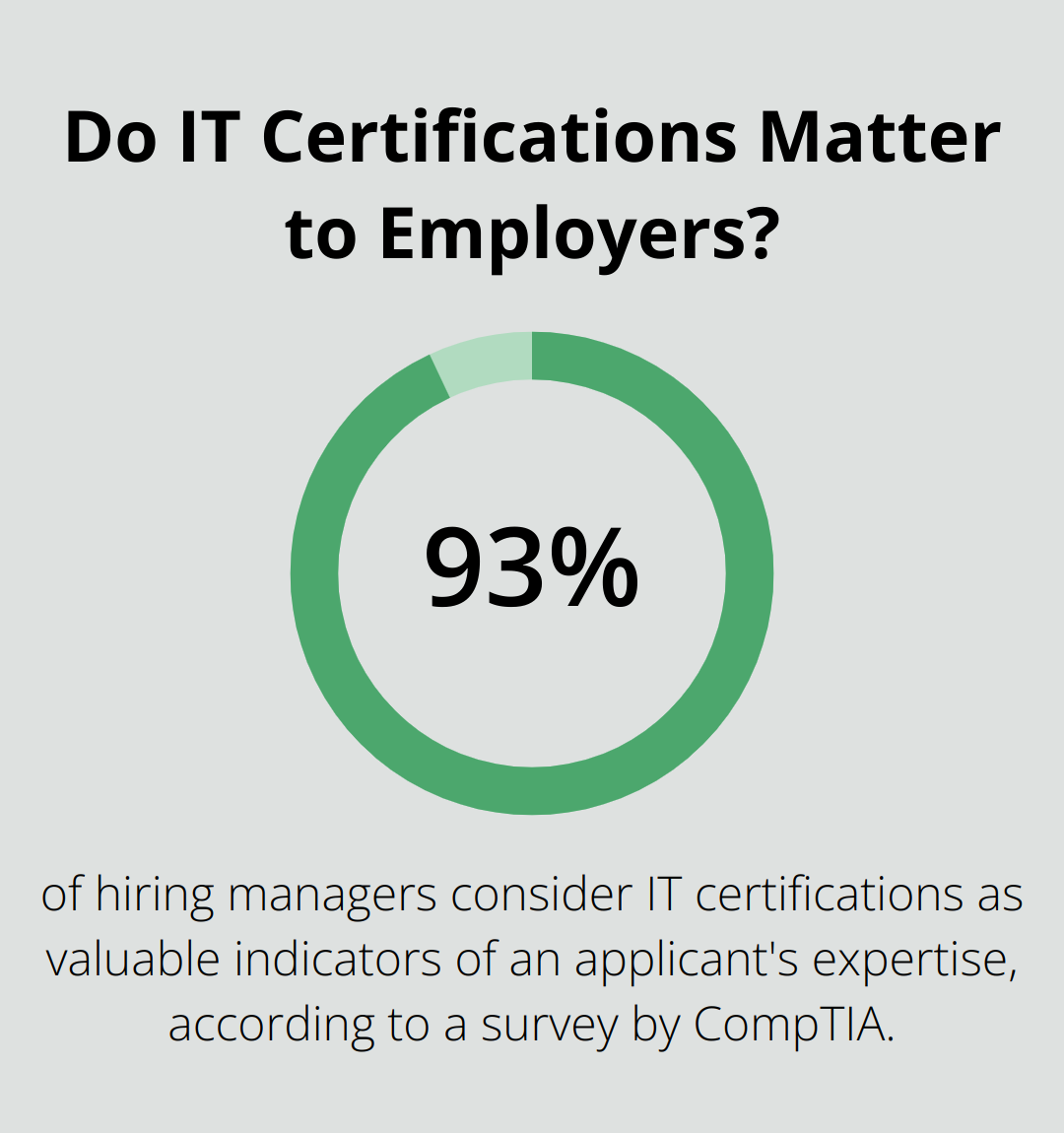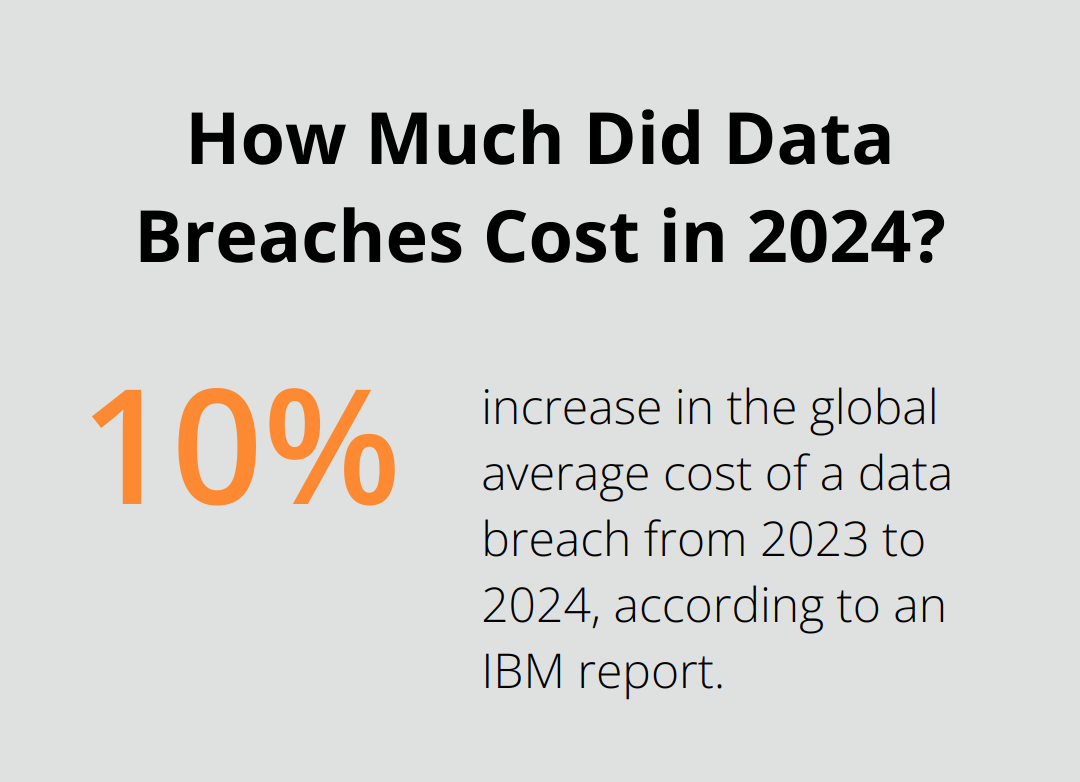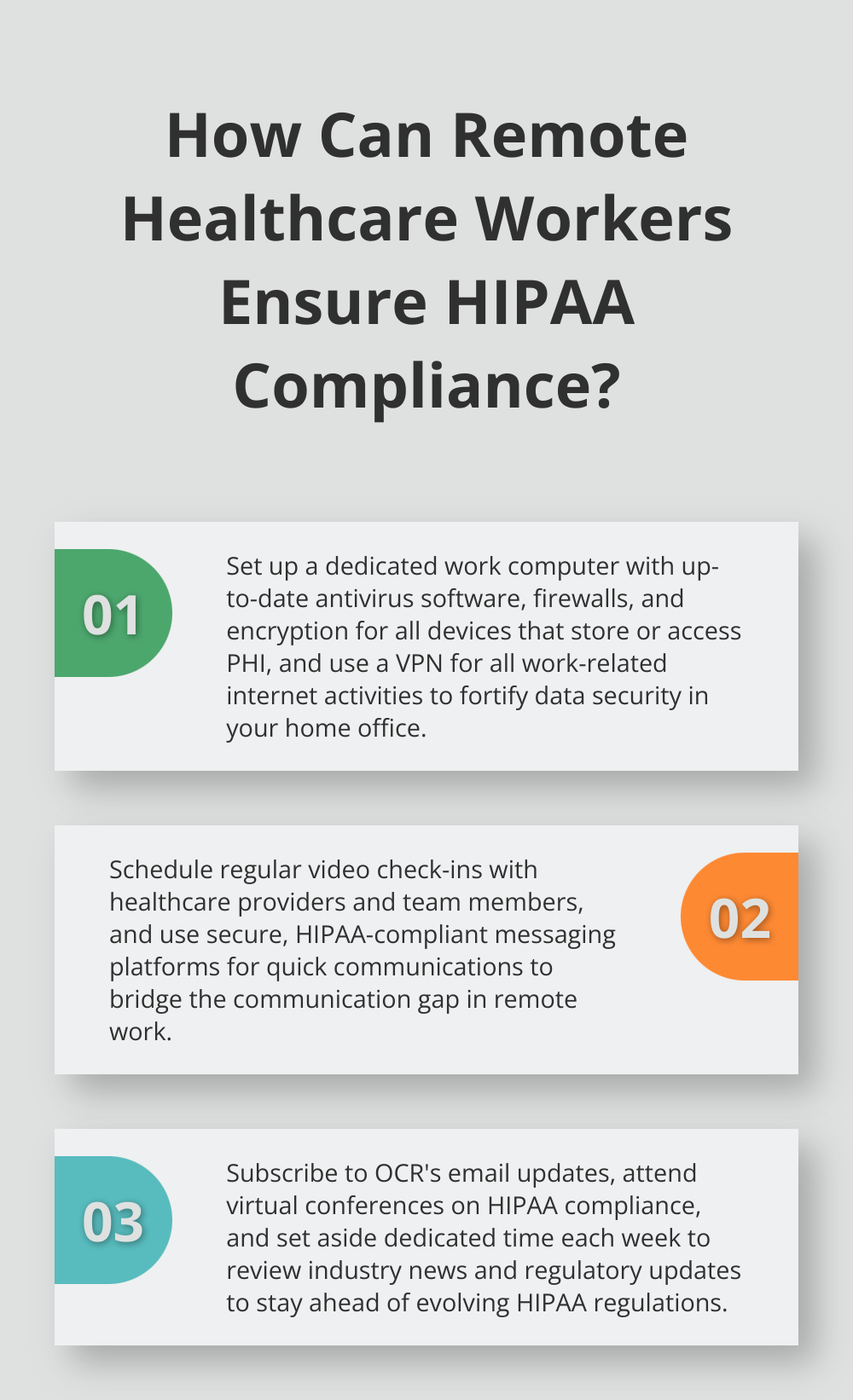The healthcare industry is rapidly evolving, and with it, the demand for HIPAA compliance jobs remote is skyrocketing. At ScriberJoy, we’ve noticed a significant shift towards remote work in this critical field.
Remote HIPAA compliance roles offer unique opportunities for professionals to safeguard patient data while enjoying the flexibility of working from anywhere. However, these positions also come with their own set of challenges that require specific skills and adaptability.
What Are Remote HIPAA Compliance Jobs?
Remote HIPAA compliance jobs protect patient health information in accordance with the Health Insurance Portability and Accountability Act (HIPAA) while operating outside traditional office settings. These positions have become essential as healthcare organizations adapt to digital transformation and remote work trends.
The Importance of HIPAA Compliance
HIPAA compliance forms the cornerstone of patient trust and healthcare ethics. The Security Rule requires covered entities to maintain reasonable and appropriate administrative, technical, and physical safeguards for protecting e-PHI.

Professionals in remote HIPAA compliance implement and maintain policies that safeguard Protected Health Information (PHI). They prevent data breaches, ensure proper access controls, and maintain the confidentiality, integrity, and availability of patient data.
Types of Remote HIPAA Compliance Positions
The field offers various positions to suit different skill sets and experience levels:
- HIPAA Compliance Officers: These professionals oversee the entire compliance program for an organization.
- Privacy Analysts: They develop and implement privacy policies and procedures.
- Security Specialists: These experts focus on the technical aspects of data protection.
- Compliance Trainers: They educate staff on HIPAA regulations and best practices.
- Auditors: These professionals conduct regular assessments to ensure ongoing compliance.
Each role contributes to a comprehensive HIPAA compliance program.
Growing Demand for Remote Compliance Professionals
The demand for remote HIPAA compliance professionals has increased significantly in recent years. This trend stems from several factors:
- Telehealth expansion: The COVID-19 pandemic accelerated telehealth adoption, creating new compliance challenges.
- Increasing cyber threats: As healthcare digitizes, the risk of data breaches grows, necessitating stronger compliance measures.
- Regulatory changes: Evolving HIPAA regulations require organizations to update their compliance strategies continually.
- Cost-effectiveness: Remote compliance professionals can serve multiple healthcare providers, offering a cost-effective solution for smaller organizations.
Employment in the United States is projected to increase 5.3 percent during the 2021–31 decade, adding about 8.3 million new jobs. This growth indicates a promising future for those considering a career in this field.
As we move forward, let’s explore the specific skills and qualifications required for success in remote HIPAA compliance roles. These positions demand a unique blend of technical knowledge, healthcare expertise, and adaptability to thrive in a remote work environment.
Skills Required for Remote HIPAA Compliance Professionals
Remote HIPAA compliance jobs demand a unique blend of expertise, technical prowess, and interpersonal skills. Successful professionals in this field possess a combination of specialized knowledge and adaptable competencies.
In-Depth Knowledge of HIPAA Regulations
A thorough understanding of HIPAA regulations is essential. Professionals must keep up with the latest updates to the Privacy Rule, Security Rule, and Enforcement Rule. The Office for Civil Rights (OCR) at the U.S. Department of Health and Human Services has investigated and resolved over 31,191 cases by requiring changes in privacy practices and corrective actions. This statistic highlights the need for vigilance and comprehensive knowledge of HIPAA requirements.
Healthcare Industry Expertise
Experience in healthcare or related fields provides vital context for HIPAA compliance work. Familiarity with medical terminology, healthcare workflows, and provider challenges enhances a compliance professional’s effectiveness. The American Health Information Management Association (AHIMA) offers certifications like the Certified in Healthcare Privacy and Security (CHPS) to validate this expertise. CHPS-certified professionals play pivotal roles in safeguarding patient information and ensuring compliance with regulatory standards such as HIPAA.
Technical Proficiency for Remote Work
Remote HIPAA compliance jobs require strong technical skills. Professionals must excel at using:
- Virtual Private Networks (VPNs) for secure connections
- Encryption tools to protect sensitive data
- Cloud-based collaboration platforms
- Video conferencing software for remote meetings

A survey by CompTIA found that 93% of hiring managers consider IT certifications as valuable indicators of an applicant’s expertise. Certifications like Certified Information Systems Security Professional (CISSP) can demonstrate the technical skills needed for remote HIPAA compliance roles.
Communication and Collaboration Abilities
Effective remote work hinges on strong communication and collaboration abilities. HIPAA compliance professionals must clearly articulate complex regulations to various stakeholders (from IT teams to healthcare providers). They also need to foster a culture of compliance across distributed teams.
A study by the Project Management Institute revealed that ineffective communication contributes to project failure one-third of the time. In remote HIPAA compliance roles, clear communication prevents misunderstandings that could lead to violations.
Many organizations offer training programs and resources to help professionals enhance their HIPAA compliance expertise in remote settings. These skills form the foundation for success in the growing field of remote HIPAA compliance. However, professionals must also prepare for the unique challenges that come with remote work in this sensitive field.
Navigating Remote HIPAA Compliance Hurdles
Remote HIPAA compliance work presents unique challenges that professionals must overcome to maintain the integrity of protected health information (PHI). These challenges range from technical security concerns to personal work-life balance issues. Let’s explore these hurdles and discuss practical solutions.
Fortifying Data Security in Home Offices
Data security in remote environments is paramount. A 2024 IBM report revealed that the global average cost of a data breach reached $4.88 million, a 10% increase over the previous year and the highest total ever. To mitigate this risk, remote HIPAA compliance professionals should implement robust security measures:
- Use a dedicated work computer with up-to-date antivirus software and firewalls.
- Encrypt all devices that store or access PHI (including external hard drives and USB sticks).
- Employ a VPN for all work-related internet activities.
- Implement multi-factor authentication for accessing work systems.
- Conduct regular security audits of home office setups.
Bridging the Communication Gap
Consistent communication with healthcare providers can challenge remote workers. A global survey by Slack highlighted the many obstacles to productivity facing desk workers today and the new, better ways leaders can support them. To address this:
- Schedule regular video check-ins with healthcare providers and team members.
- Use secure, HIPAA-compliant messaging platforms for quick communications.
- Provide clear, written documentation of all compliance-related discussions and decisions.
- Establish virtual office hours for healthcare providers to ask compliance-related questions.
Staying Ahead of Regulatory Changes
HIPAA regulations evolve, and remote professionals must stay current. The Office for Civil Rights (OCR) at the U.S. Department of Health and Human Services regularly updates guidance on HIPAA compliance. To stay informed:
- Subscribe to OCR’s email updates and check their website for new guidance.
- Attend virtual conferences and webinars on HIPAA compliance.
- Join professional organizations like the Health Care Compliance Association (HCCA) for networking and educational opportunities.
- Set aside dedicated time each week to review industry news and regulatory updates.
Maintaining Work-Life Balance
Remote work can blur the lines between professional and personal life. To maintain a healthy balance:
- Establish a dedicated workspace separate from living areas.
- Set clear work hours and communicate them to healthcare providers and colleagues.
- Use time-tracking tools to monitor work hours and prevent overwork.
- Take regular breaks and schedule non-work activities to avoid burnout.

Remote HIPAA compliance professionals can effectively protect patient data while maintaining their own well-being by addressing these challenges head-on. As the field continues to evolve, adaptability and proactive problem-solving will prove key to success in remote HIPAA compliance roles.
Final Thoughts
The landscape of HIPAA compliance jobs remote continues to evolve rapidly. These roles offer flexibility and the chance to work with diverse healthcare providers across different locations. Professionals who excel in these positions combine technical knowledge, industry experience, and adaptability to protect patient data effectively.

Remote HIPAA compliance work presents unique challenges that professionals must overcome. Implementing robust security measures, maintaining clear communication channels, and staying updated on regulatory changes are essential for success in this field. The future outlook for remote compliance professionals in healthcare remains promising as telehealth services expand and cyber threats become more sophisticated.
At ScriberJoy, we recognize the importance of HIPAA compliance in healthcare documentation. Our medical transcription software combines AI technology with human verification to ensure high accuracy while maintaining HIPAA compliance. This streamlined documentation process allows healthcare providers to focus on delivering quality patient care.

Leave a Reply
You must be logged in to post a comment.